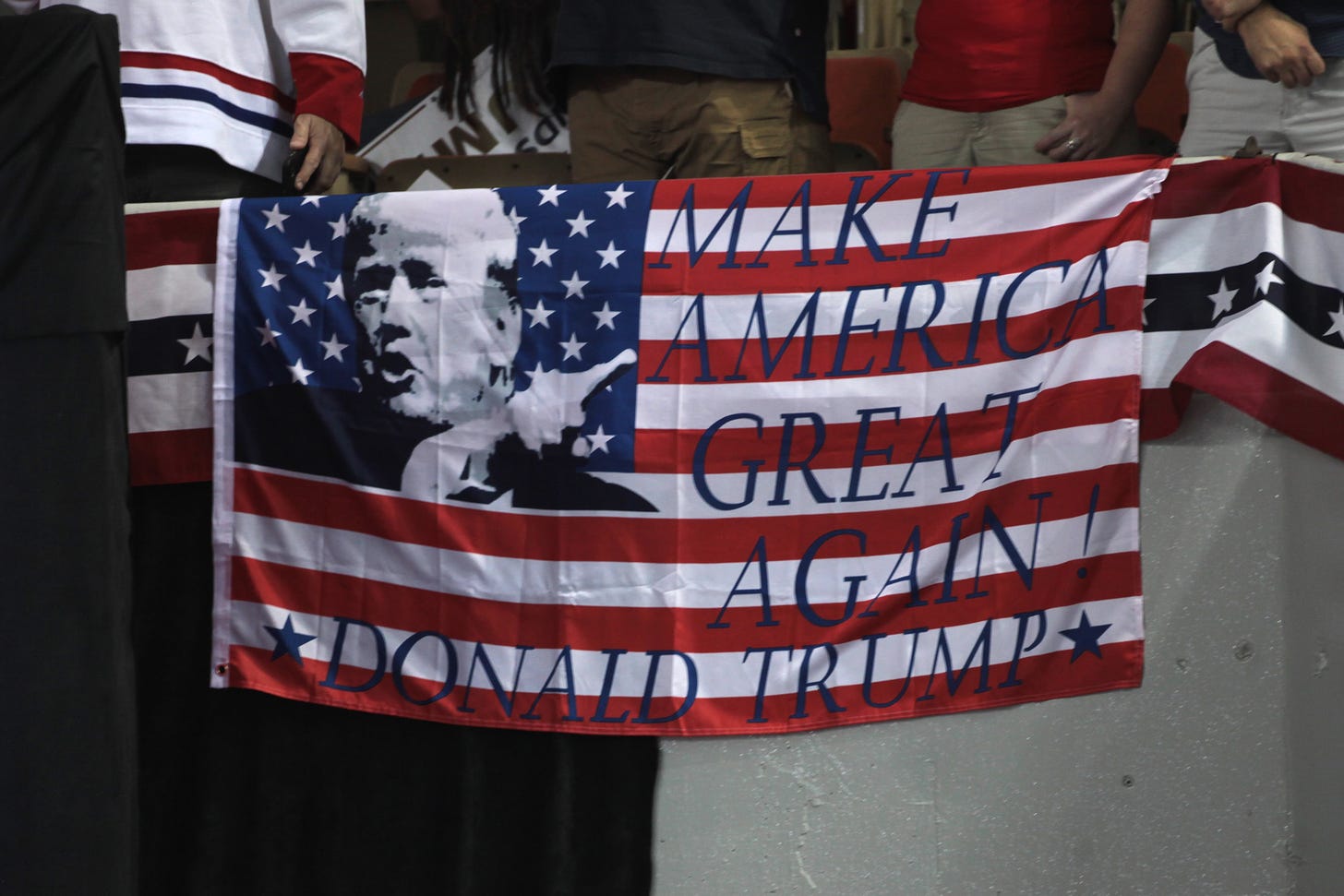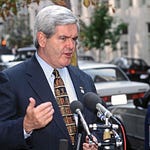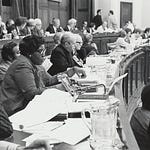
It’s the summer of 1978, three years after the end of an American war in Vietnam that Joan Baez and other musicians had lifted their voices to oppose. On this day, Baez is giving a live, outdoor concert in Norway. Bantering with an audience of young Norwegians, she smiles to a happy, shirtless youth and segues into her next number: “The Night They Drove Old Dixie Down.”
Canadian Robbie Robertson, lead guitarist of The Band, wrote that song for his drummer, Southerner Levon Helm, in 1968. The original, backed by a Robertson, Rick Danko and Richard Manuel blues harmony, describes the pain and despair of Virgil Kane, a Southern railroad worker who watches the Confederacy crumble before his eyes in 1865.
Although this powerful ballad can be seen as an anti-war song, it also sentimentalizes the “Lost Cause” myth —a cherished dream of the independent Southern nation, based on white supremacy, that might have been had the Confederacy not lost the Civil War. As in other cultural renditions of this alternative South, in which all white men are equal and have dignity, the song conceals the causes of the war: a violent, illegal rebellion that sought to preserve racial slavery. Talking to one interviewer who raised this issue, Robertson again returned to mythmaking. The song, he recalled, had its origins in a conversation with Levon Helms’s father, a poor, white Delta farmer, about what his family lost in 1865.
In the interview, Robertson says he felt like he was writing a movie: in fact, he was transcribing, and embellishing on, a myth, one that figured rebellious Southerners as the victims of violence, not the cause of it, much as those being held in jail for the failed coup of January 6, 2021, are perceived by Donald Trump’s supporters as martyrs.
Nevertheless, it’s a powerful song, and it became an instant folk-rock hit when it was released in 1969. It climbed even higher in 1971 when Baez recorded it for her double album Blessed Are. But why was Baez, a longstanding supporter of the Black Civil Rights movement, singing such a song in the first place? And why was she still singing it on August 1, 2017, this time accompanied by the Indigo Girls and Mary Chapin Carpenter, even as Donald Trump’s MAGA crowds declared themselves descendants of that same Confederacy?
A better question might be: how do myths provoke feelings so powerful that even people with progressive politics like Baez stop paying attention to the dangerous, false histories they promote? And who better to turn to for answers, at a time when the Donald Trump MAGA myth machine promotes the worst aspects of American history as virtues, than American Studies scholar Richard Slotkin? A former colleague, friend, and mentor from my Wesleyan University days, Slotkin has spent a career exploring the violence at the center of the American past, and how it is both concealed and elevated by national mythmaking.
Just to reassure you: not all myths are bad. After all, if the Confederacy represented one myth about the American founding, the Union government represented another. As Lincoln put it in the 1864 Gettysburg address, that myth was that the nation’s founders “brought forth on this continent, a new nation, conceived in Liberty, and dedicated to the proposition that all men are created equal.”
That was a myth too—but it’s one that we who love democracy are willing to fight for still, and one that those who do not love democracy—Donald Trump and his allies—are determined to defeat. In his new book, A Great Disorder: National Myth and the Battle for America (Belknap Press, 2024), Slotkin examines the history of the two Americas that exist side-by-side today, with their clashing and common myths, two American cultures that will meet at the ballot box in November 2024 to decide the fate of American democracy.
Show notes:
Richie refers to the American “myth of the frontier.” There are many worthwhile things to read on this topic, but one of the primary sources that most influenced intellectuals, as well as politicians, in the twentieth century was Frederick Jackson Turner’s “The Significance of the Frontier in American History” (1893).
Claire and Richie occasionally refer back to the white supremacist Unite the Right rally in Charlottesville, Virginia, on August 12, 2917.
“The Lost Cause” is another big theme in our discussion. A book that helps us think about how this myth structured our political and built environments to promote white supremacy is Karen L. Cox, Dixie's Daughters: The United Daughters of the Confederacy and the Preservation of Confederate Culture (University of Florida Press, 2019). Listeners may also wish to return to my conversation with Jacqueline Dowd Hall in Episode 32 about the Lumpkin sisters, one of whom traveled the South promoting the Lost Cause.
Richie discusses aspects of the frontier myth, particularly race, that inflect the long-running Star Wars franchise. To learn more, see Case R. Sunstein, The World According to Star Wars (Day Street Books, 2016).
Claire mentions the Hamas attacks of October 7, 2023, and how Israel’s war on Gaza draws on American frontier symbolism.
Richie explains how a comic television show like The Dukes of Hazzard (2005) promotes neo-Confederate ideology.
Thinking about how white supremacist myths are passed on from parents to children, Claire mentions Terrance Dean’s article on racism, film and love, “Generations: Toward a Black Love Teaching Ethic,” Public Seminar, April 28, 2022.
Richie points to Donald Trump’s deliberate activation of an American myth that promotes the self-made man. There is probably no better example of this than the former president’s first book, Trump: The Art of the Deal (Random House, 1987).
Richie mentions opposition to Nikole Hannah-Jones’s 1619 Project (One World, 2021) as a point of convergence for the MAGA movement and mainstream conservatives, in part because because it contradicts deeply-held racial myths about the United States.
Claire and Richie discuss Trump as a sacred figure, and Christian nationalism as a powerful political myth that supports the MAGA project.
In discussing the failure of progressive politics, and the New Deal specifically, to generate effective myths, Richie points to the one movie that he considers mythic in that periods, The Grapes of Wrath (John Ford, 1940). Claire mentions a second movie, Mr. Smith Goes to Washington (Frank Capra, 1939) and suggests that what these two films have in common is not that they are progressive, but that they are populist.
Claire points to Representative Marjorie Taylor Greene (R, GA-14), her March 2023 press conference about the January 6 prisoners and the conditions in the Washington, D.C. jail, and how it evokes the forms of sentiment typified by The Captive: The True Story Of The Captivity Of Mrs. Mary Rowlandson Among The Indians, first published in 1682.
Still have questions? That’s great! Go ahead and:
You can download this podcast here or subscribe for free on Apple iTunes, Spotify, Google Podcasts, or Soundcloud. You can also keep up with Political Junkie content and watch me indulge my slightly perverse sense of humor on Instagram, Threads, and TikTok.
If you enjoyed this episode, why not try:
Episode 41, Heather Cox Richardson Believes In You: A conversation about Richardson's book, "Democracy Awakening: Notes on the State of America,” Substack, and the importance of popular history.
Episode 35, No Age of Innocence: A conversation with historian Drew Faust about fighting back, making change, and her new memoir, "Necessary Trouble: Growing Up at Midcentury."
Episode 28, Terrorism Begins At Home: A conversation with legal journalist Jeffrey Toobin about his new book, "Homegrown: Timothy McVeigh and the Rise of Right-Wing Extremism."
And here’s a bonus: all new annual subscriptions include a free copy of my book about political media, Political Junkies: From Talk Radio to Twitter, How Alternative Media Hooked Us on Politics and Broke Our Democracy (Basic Books, 2020.)













Share this post